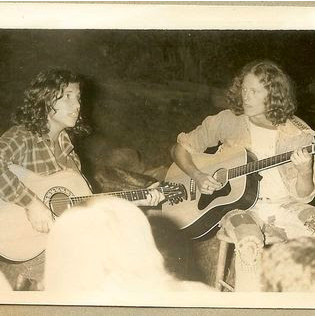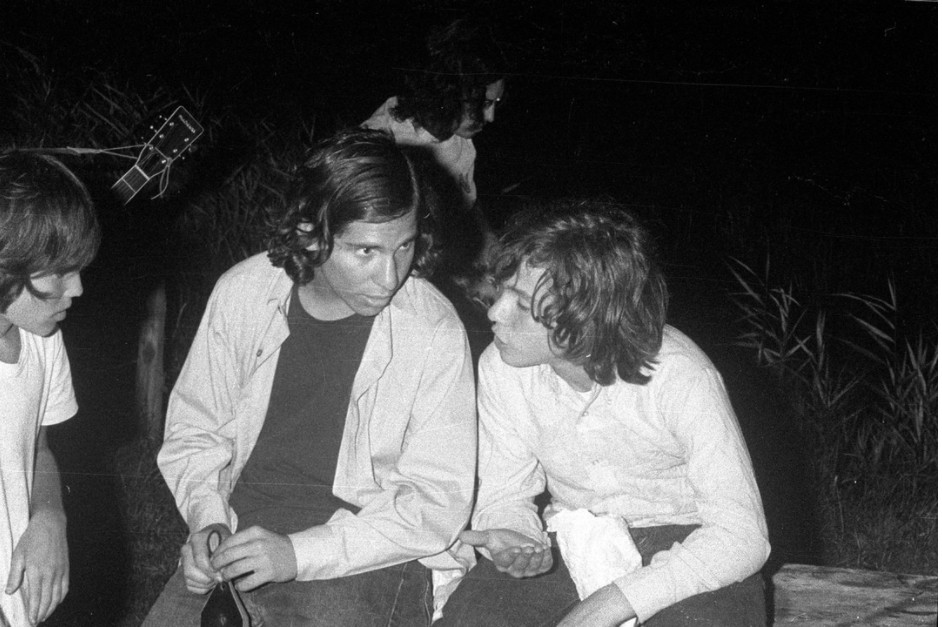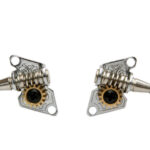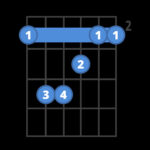For a young guitarist in the mid-1960s, arriving at Camp Fuller was like stepping into a dream. Dave Weiss, who spent eight summers at camp from 1967 to 1974, recalls bringing his already burgeoning guitar skills to the Junior Division. He could already play a wealth of hits from iconic bands like The Beatles, The Rolling Stones, and The Doors. Practicing and playing these tunes in his tent was not just tolerated, but embraced by fellow campers and counselors alike, setting the stage for a rich musical journey at Fuller Guitar.
Discovering a Musical Community at Fuller
Camp Fuller wasn’t just about individual practice; it was about connection. The Council Fires became a natural stage for young musicians like Dave. He found himself performing in small groups with other musically inclined campers and counselors. This experience transformed into a defining aspect of his camp life, rivaling even swimming in importance. Music wasn’t a scheduled program; it was a vibrant, organic community that thrived in the pockets of free time – during “siesta,” after evening activities, and throughout weekends. This self-driven nature of the Fuller guitar scene fostered a unique bond among musicians.
The Golden Age of Music at Camp Fuller
The 60s and 70s were a transformative era, and Camp Fuller mirrored that spirit. The somewhat unstructured environment allowed music to flourish as a daily activity. Aspiring guitarists actively sought out like-minded individuals, forming impromptu jam sessions in tents, cabins, and even division leader shacks. This created an inclusive “outsider” activity where anyone could join and feel encouraged. Camp Fuller became a true haven for music makers. Folk, rock, blues, country, jazz, and soul music converged, creating an eclectic and inspiring atmosphere. At Fuller, this new wave of music was embraced wholeheartedly, echoing through council fires, camping trips, and devotional gatherings – anywhere a good time and guitars could be found.
Influences and a Shared Musical Brotherhood
Over those formative summers, Camp Fuller drew in dozens of kids and counselors with guitars. It became a brotherhood of shared musical exploration, exchanging songs, lyrics, chord progressions, guitar riffs, and stylistic nuances. This collective enthusiasm fueled a deep dive into the contemporary music landscape. From The Kingston Trio to the British Invasion, protest songs, Dylan, Simon & Garfunkel, The Byrds, The Band, Woodstock anthems, singer-songwriters, and The Grateful Dead – all were part of the Fuller guitar repertoire. This music was fresh and exciting, shaping the musical identities of those present. Dave recalls a landmark evening in 1969 when Bill Ressler and Bobby Geary may have introduced Neil Young’s “Sugar Mountain” to the camp community around a council fire.
 David Weiss and Gordy Wallace playing guitars at a Camp Fuller Council Fire, showcasing the musical atmosphere
David Weiss and Gordy Wallace playing guitars at a Camp Fuller Council Fire, showcasing the musical atmosphere
Sun Prod and a Continuing Musical Legacy
The vibrant musical energy at Camp Fuller in 1970 culminated in the first Sun Prod, a night where anyone with musical talent could perform. This event highlighted the depth of musical talent nurtured at camp. Decades later, Dave returned to play at the 30th-anniversary celebration of Sun Prod, a testament to the enduring musical spirit of Fuller. Music remains a vital part of Camp Fuller life today. Many of the songs from Dave’s generation continue to be sung each summer, passed down through generations, reinforcing the Fuller guitar community. “Sugar Mountain,” and countless other tunes, will always resonate within its grounds.
 David and Fred Weiss playing guitars, highlighting the intergenerational aspect of music at Camp Fuller
David and Fred Weiss playing guitars, highlighting the intergenerational aspect of music at Camp Fuller
Inspiration and the Music Plays On
Dave credits his time at Fuller and the many musically inspiring individuals he met there – including Bill Ressler, Larry Schwartz, and Gordy Wallace, among others – for shaping his musical path. Inspired by his experiences, he continues to play many of the songs he learned at camp and even writes his own music. Camp Fuller, for Dave and many others, was more than just a summer camp; it was a fertile ground for musical growth and a lifelong source of inspiration, built around the simple joy of Fuller guitar.


